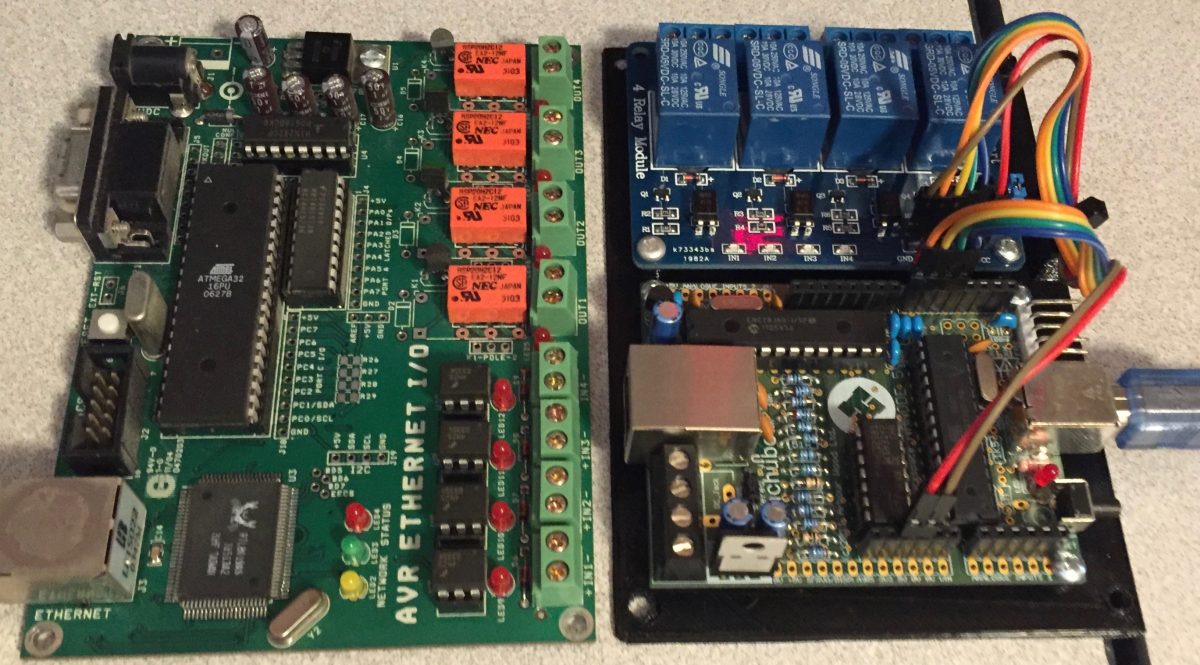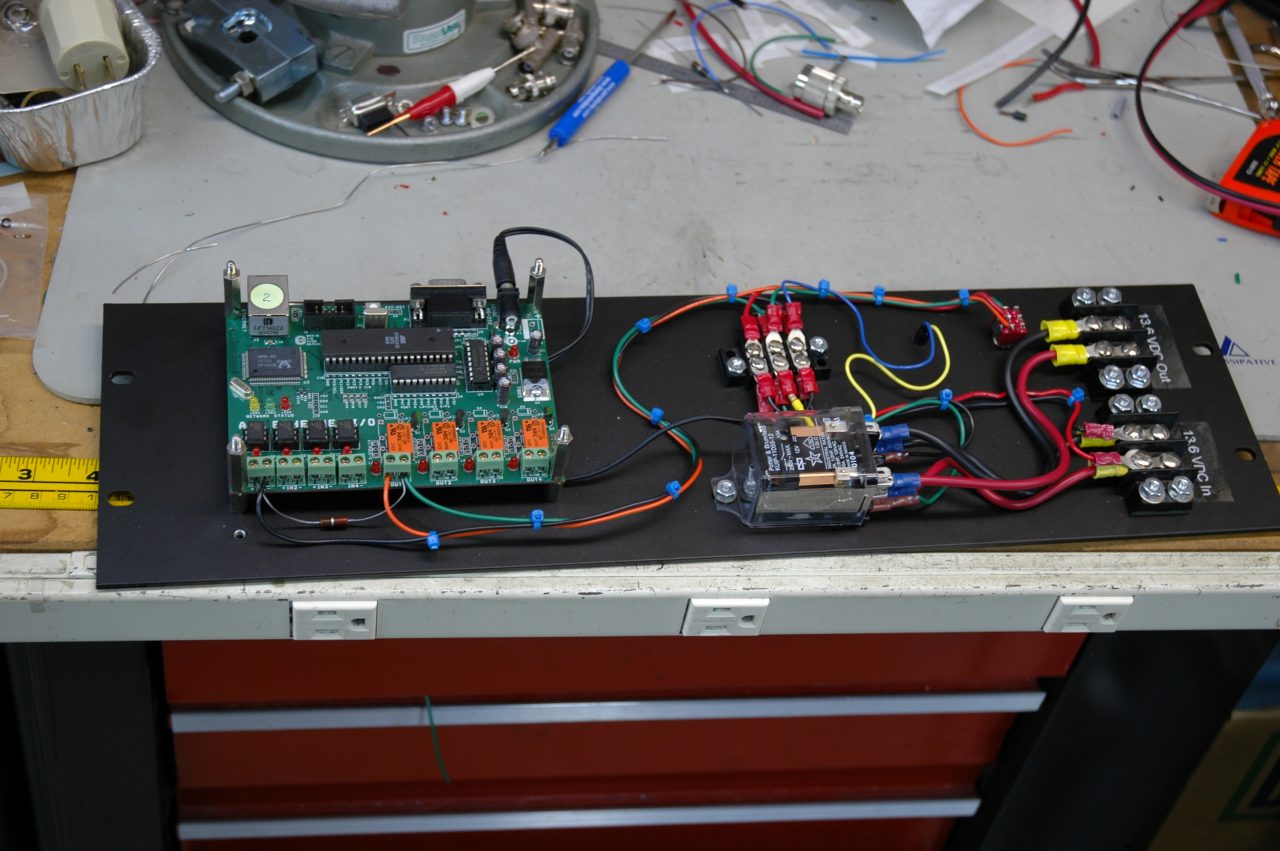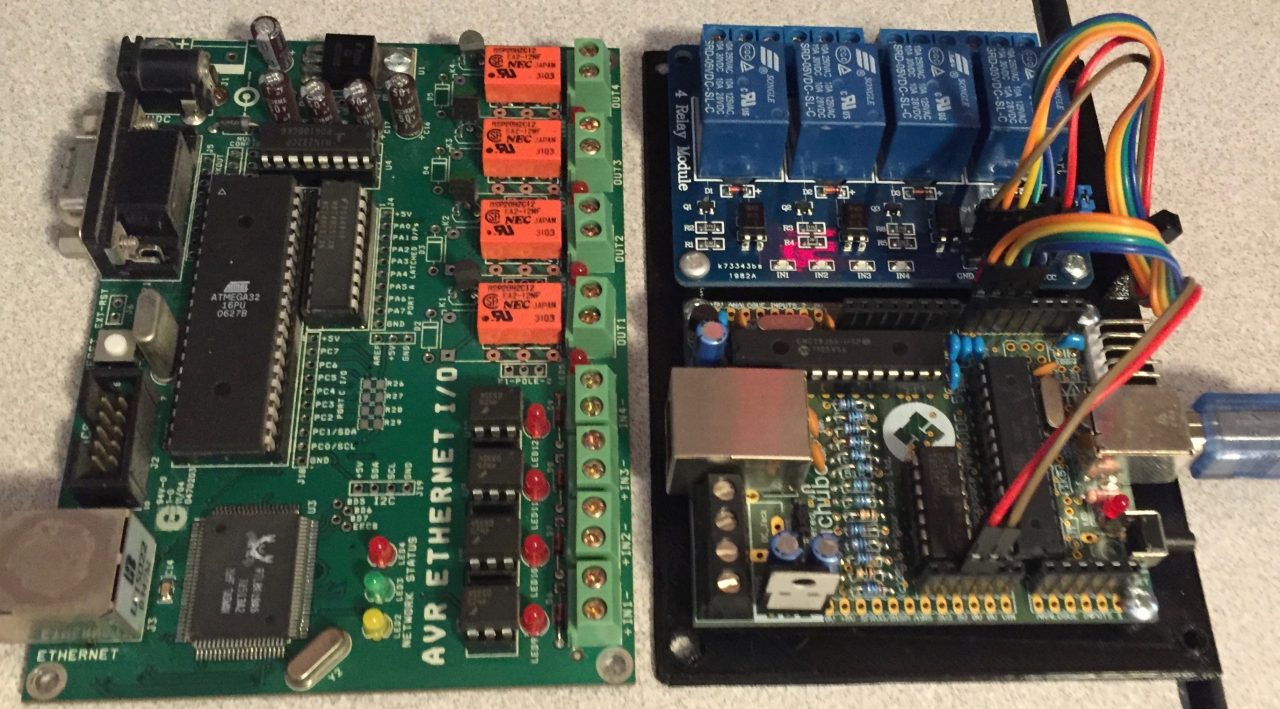Howard, KG6GI and I installed the first D-STAR repeater system for the SOARA club in early 2007. During the process, we realized that we needed a way to remotely disable this new repeater system should anything go wrong, and to meet our FCC obligations.
Howard had already obtained a network connected relay and opto-isolated input control board designed by VA3TO called the “AVR Ethernet I/O”. Howard fabricated a 19″ rack panel with standoffs for the board, high current DC relay, bypass switch and indicators.
With 4 relays and 4 opto-isolated inputs, we also wired the remote control board to our D-STAR gateway computer and Echolink Node/Console server systems so that we could remotely reset them too. We used the opto-isolated inputs to determine if we had lost A/C power and test the door contact sensor, to know if the door was open.
I wrote a Perl application to query the board status remotely and developed some alerting code that would let us know if the A/C power failed, or if the door was open.
This worked great for many years until recently, when the board stopped communicating over the network. I was unable to repair the board, and our spare board exhibited the exact same failure mode.
So, I set out to build a replacement.
I had a “Nanode” (Arduino compatible) board that my friend Steve, KV6O had given me some time ago.
It had been a long time since the kit was produced, but I was able to find the assembly manual and figure out how to get the network working as well. I wrote a sketch that listens for commands and turns relays on or off accordingly.
I bought a 4port relay board from Amazon to use with the I/O pins on the Arduino board.
To make swapping the new setup in easier, I designed and printed a 3D platform that matched the EIO boards mounting screw locations exactly.
In the future, I will add the ability to probe isolated inputs to accomplish the same level of monitoring we had with the AVR EIO board.



Leave a Reply